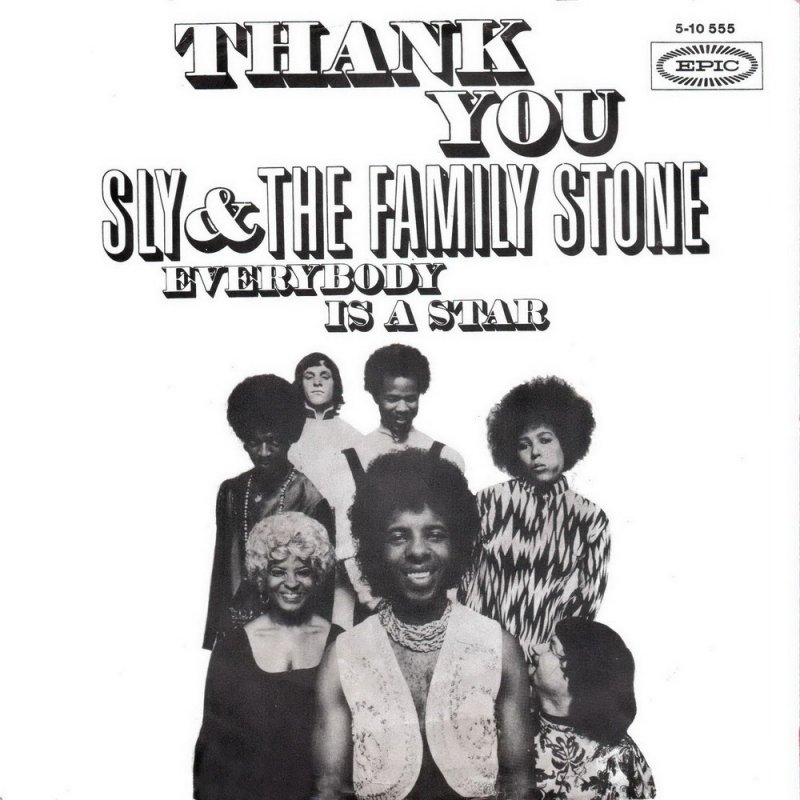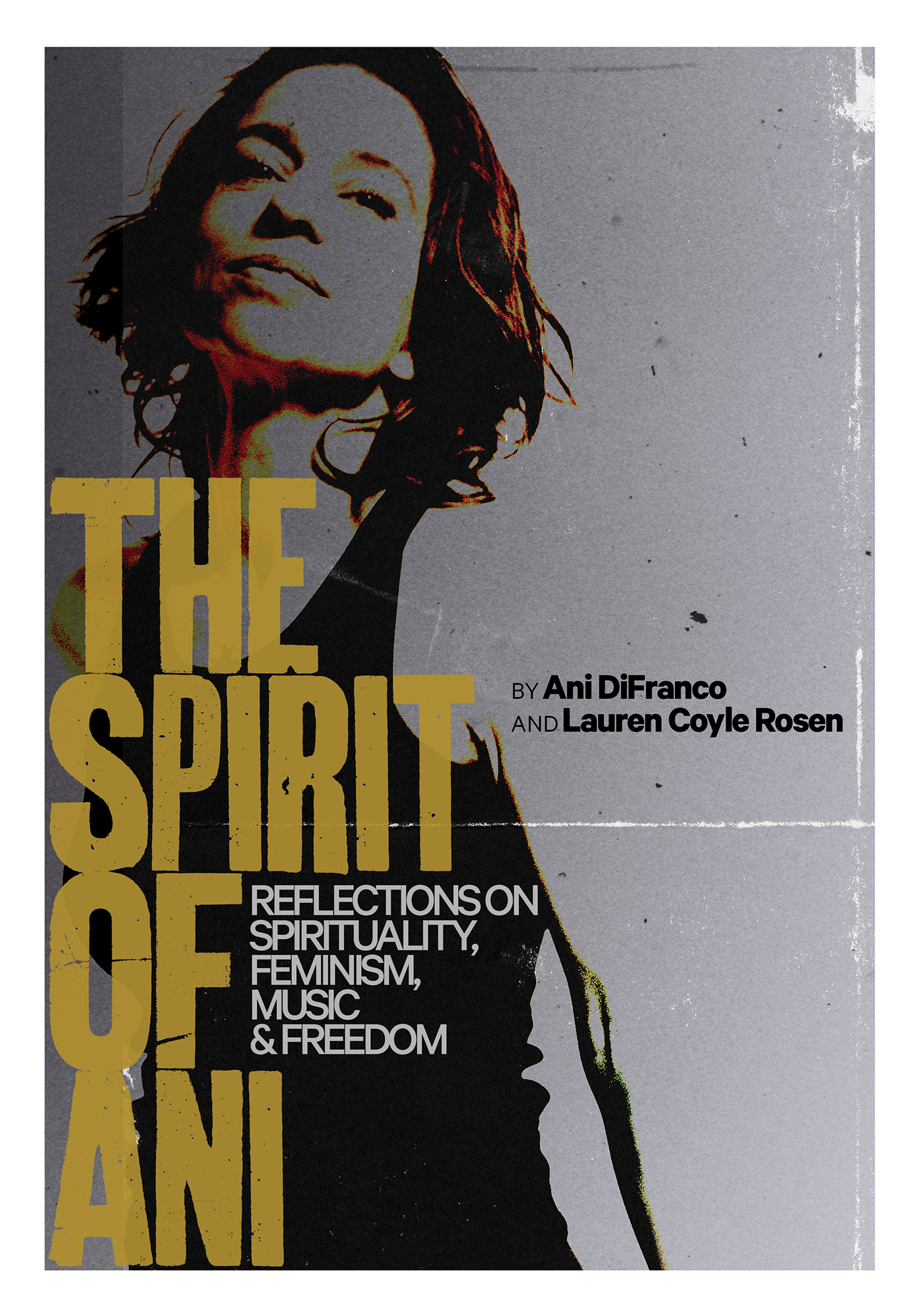In The Number Ones, I'm reviewing every single #1 single in the history of the Billboard Hot 100, starting with the chart's beginning, in 1958, and working my way up into the present.
Sly & The Family Stone - "Thank You (Falettinme Be Mice Elf Agin)"
HIT #1: February 14, 1970
STAYED AT #1: 2 weeks
It's a funny thing: A pop song that directly rebels against the entire idea of pop music, while at the same time functioning as pop music. We've seen versions of this again and again throughout pop music history, whenever a star gets uncomfortable with what it means to be a star. And we might've never seen a more direct and poignant example than what Sly Stone did once he finally had the world's ear.
In the beginning, Sly & The Family Stone were pop's great utopian experiment: A band where the musicians were black and white, male and female, drawing on hard R&B and way-out psychedelic rock, playing for every audience that would have them. In 1969, the Family Stone hit #1 with "Everyday People" and played one of the standout sets at Woodstock. Their wild, freaked-out take on soul music helped birth funk and set the Motown aesthetic on a whole new trajectory; the Temptations and the Jackson 5, especially, built on what they'd done. But for Sly Stone and his bandmates, things turned dark quickly.
Around the time that they blew up and became huge stars, Sly & The Family Stone left their San Francisco home for Los Angeles. They all started doing harder drugs -- PCP was reportedly a favorite -- and hating each other. Sly insulated himself from his bandmates, some of whom were his actual siblings, and he surrounded himself instead with dealers and gangsters. There are stories about how he'd carry around a violin case full of nothing but drugs. He started missing shows and putting on chaotic performances at TV tapings. And he stopped releasing music. At a time when popular artists were expected to crank out albums at a dizzy rate, Sly & The Family Stone only put out one single in the more than two years between their 1969 breakout Stand! and the dark, nasty 1971 epic There's A Riot Goin' On. And that single went to #1.
On a purely sonic level, "Thank You (Falettinme Be Mice Elf Agin)" sounds like a total celebration. It's sharp, sprightly, upbeat. All the band members share lead vocal duties, singing as one, like they're an army. Larry Graham hammers his bass hard, popping the strings and treating his instrument like it's percussive. Sly and Freddie Stone's guitars do a wah-wah strut, and Jerry Martini and Cynthia Robinson's horns stab through the mix. The hook sounds celebratory -- like the Family Stone is thanking America's public for latching onto their bugged-out sound.
But that is not, of course, what the Family Stone were doing. Instead, the lyrics are both sardonic and freaked the fuck out. The first verse may or may not be a story about a dangerous fist fight with a cop, or with a white man: "Looking at the devil, grinning at his gun / Fingers start shaking, I begin to run." The second is an admission of defeat, a statement of futility: "Thank you for the party, but I could never stay / Many things on my mind / Words in the way." On the third verse, the band reels off the titles of past hits, turning those words into pure gibberish. It's a whole song of heavy notes, and it ends on the heaviest one: "Dying young is hard to take / Selling out is harder."
So: A stark fuck-you hidden within the disguise of a great party song. And it will remain a great party song, since most of us never pay attention to the lyrics, which is the whole problem that those lyrics tried to address. (Technically, "Thank You" shared its #1 with the ballad "Everybody Is A Star," which would've been a 7.) "Thank You" is a remarkable song, a possibly-ironic work of unity from a band that wasn't even close to being unified. It's messy, since everything the Family Stone did was messy. And Sly would find sharper, more direct ways to say the things that he wanted to say. But the intensity was already there, if you knew where to look.
GRADE: 8/10
BONUS BEATS: Here's the queasy, heavy cover of "Thank You (Falettinme Be Mice Elf Agin)" that the UK postpunk band Magazine included on the 1980 album The Correct Use Of Soap:
BONUS BONUS BEATS: On Janet Jackson's 1989 single "Rhythm Nation," producers Jackson, Jimmy Jam, and Terry Lewis sampled the bassline from "Thank You (Falettinme Be Mice Elf Agin)" and gave Sly Stone a producer's credit. Here's the (great) video:
("Rhythm Nation" peaked at #2. It would've been a 9.)
BONUS BONUS BONUS BEATS: Vanilla Ice's 1991 vehicle Cool As Ice opens with Vanilla and his friends freaking out a party full of squares by rapping his song "People's Choice," which samples "Thank You (Falettinme Be Mice Elf Agin)." Here's that scene:
BONUS BONUS BONUS BONUS BEATS: During the closing credits of 2007's Shrek The Third, Antonio Banderas and Eddie Murphy -- Puss-In-Boots and Donkey -- cover "Thank You (Falettinme Be Mice Elf Agin)." Here's that:
(Eddie Murphy's highest-charting single is "Party All The Time," which reached #2 in 1985. It would've been a 6. As far as I can tell, Antonio Banderas has never charted in the US, but "Cancion Del Mariachi," his 1995 Los Lobos collab from the Desperado soundtrack, was pretty badass.)






